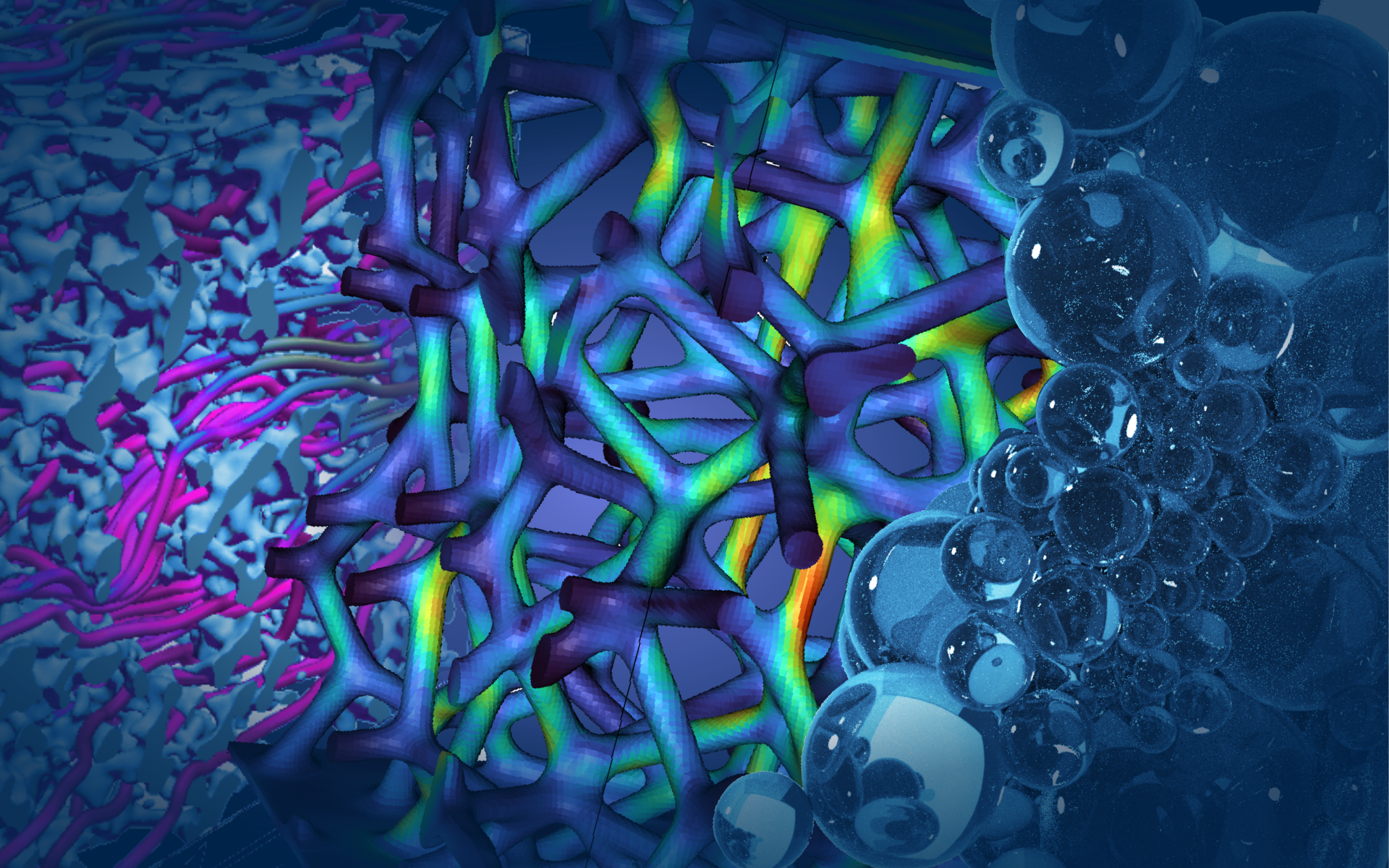Data-driven Modeling and Artificial Intelligence
The Data-driven Modelling and Artificial Intelligence group of the IAM-MMS at KIT specializes in the further development, provision and integration of artificial intelligence (AI) methods for applications in materials science and mechanics. In cooperation with the other groups of the IAM-MMS and within the framework of collaborations at KIT and with external partners, we provide solutions for the characterization, analysis and synthesis of materials, especially microstructures, with material behavior ranging from fracture mechanics to biological processes. In addition to experimental data, e.g. from imaging techniques, the majority of applications also use simulation methods such as the finite element method (FEM) or finite volume method (FVM) to generate additional data on physical systems.
To this end, physics-based and data-driven methods are combined, e.g. in intelligent elements and solvers, to enable dimensional reduction and efficient calculation. AI and machine learning methods include supervised, unsupervised, reinforcement and active learning and optimization algorithms from principal component analysis to artificial neural networks from deep learning, which are used for regression, classification and clustering. In combination with research data management, optimization algorithms allow the implementation of design-of-experiments processes, e.g. with Bayesian optimization. Due to the interdisciplinary set-up of the group, with strong expertise in both data science and engineering applications, methods from the field of explainable and physics-informed AI can also be effectively implemented and evaluated.
A data platform and efficient research data management are essential for effective implementation. The group is therefore developing the open-source Python library CIDS (Computational Intelligence and Data Science) for AI applications in materials science and mechanics. This library also forms the basis for the AI pillar of the Kadi4Mat research data platform: KadiAI. This direct integration into Kadi allows an efficient coupling of data and physics and the creation of best-practice workflows for the implementation of AI solutions for physical problems.
Main research areas
- Explainable and physics-informed machine learning models for experimental investigations and simulations of materials
- Coupling data-driven models with physics-based simulation software
- Integration and interplay of AI methods and research data management for active learning and automated experimental design

